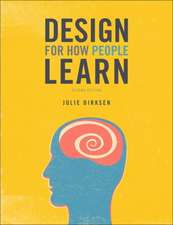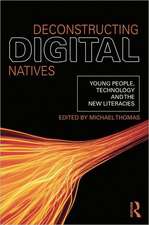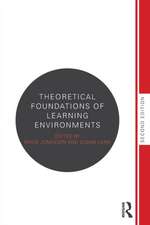E-Learning
Editat de Audrey R. Lipshitz, Steven P. Parsonsen Limba Engleză Hardback – 30 apr 2008
Preț: 1112.53 lei
Preț vechi: 1521.47 lei
-27% Nou
Puncte Express: 1669
Preț estimativ în valută:
212.91€ • 231.19$ • 178.84£
212.91€ • 231.19$ • 178.84£
Carte disponibilă
Livrare economică 02-16 aprilie
Preluare comenzi: 021 569.72.76
Specificații
ISBN-13: 9781604561562
ISBN-10: 1604561564
Pagini: 250
Ilustrații: tables & charts
Dimensiuni: 186 x 261 x 15 mm
Greutate: 0.75 kg
Editura: Nova Science Publishers Inc
ISBN-10: 1604561564
Pagini: 250
Ilustrații: tables & charts
Dimensiuni: 186 x 261 x 15 mm
Greutate: 0.75 kg
Editura: Nova Science Publishers Inc
Cuprins
Preface; Web-based Formative Assessment: Issues and Trends; Assessing Intercultural Competence in E-learning Projects; E-learning for All; Will E-learning Die?; Self-regulation in Mathematical E-learning: Effects of Metacognitive Feedback on Transfer Tasks and Self-Efficacy; Lifelong Learning will be based on E-learning: What is the way to come there?; *Guiding the Design of E-Learning Programs: Managing Presentation Content to Match the Cognitive Factors of Users; *When Collaborative PBL Meets E-learning: How does it Improve the Professional Development of Critical-Thinking Instruction?; A methodological approach to develop and evaluate tools for the follow-up analysis of teacher education in e-learning; Experience in E-Learning from BEPI, An Internet Course in Basic Epidemiology for Medical Students and Public Health Training; The Relevance of Research in Cognitive Neuroscience related to E-Learning; Tailoring and Webcasting for Patient and Student Health Education; Index











